"I hope you promote standard Mandarin," famous voice actor Kuan Chihhung said in a cross-Strait exchange activity in August this year, when speaking of the Chinese dubbing community's preference for different accents.
Kuan, who is from Taiwan, has been involved in voice acting since 1985, lending his voice to numerous iconic characters such as Rukawa Kaede in Slam Dunk, Richard Moore and Kid the Phantom Thief in Detective Conan, and Sesshomaru in Inuyasha. His voice is part of the childhood memories of countless people from both sides of the Taiwan Strait.
Now, Kuan works as a mentor for young voice actors at Taiwan's Best Voice Studio.

At the end of August, Kuan led a group of young Taiwan voice actors from Best Voice Studio to participate in the award ceremony of the Second Cross-Strait Animation Dubbing Contest held in Xiamen, Fujian province. Among them, Xiaobao and Yayian won the Third Prize. "We also participated in the competition last year and won the Most Promising Award. This year, we've made progress and won the third prize, making us feel absolutely happy!" Xiaobao said.
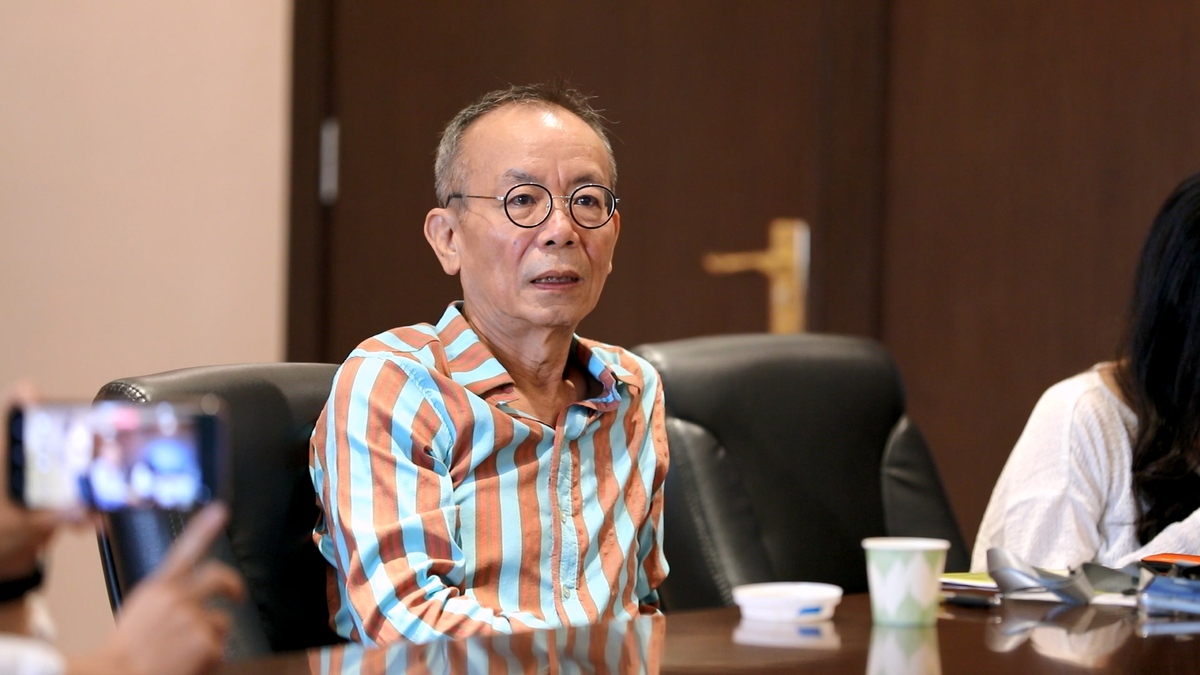
They also had a special task in the award ceremony — delivering a live dubbing performance together with three young voice actors, Wang Zekun, Duan Yunze, and Xie Wanwan, who are from the Chinese mainland. This cross-Strait collaboration dubbing performance, the highlight of the award ceremony, was guided by Kuan.
Before the event, these young actors could only meet online to practice. Despite the distance, the contestants from both sides of the Strait have already left great impressions on each other.
"Their basic skills are solid. The pronunciation, enunciation and breath control of them are extremely precise," Yayian said.
The day before the performance, the team just met for the first time in person in Xiamen. "We had never met before, but it felt so familiar when we finally did. They're our compatriots, and their enthusiasm has touched me. Working with them on the voice performance was truly a joy," mainland contestant Xie said.
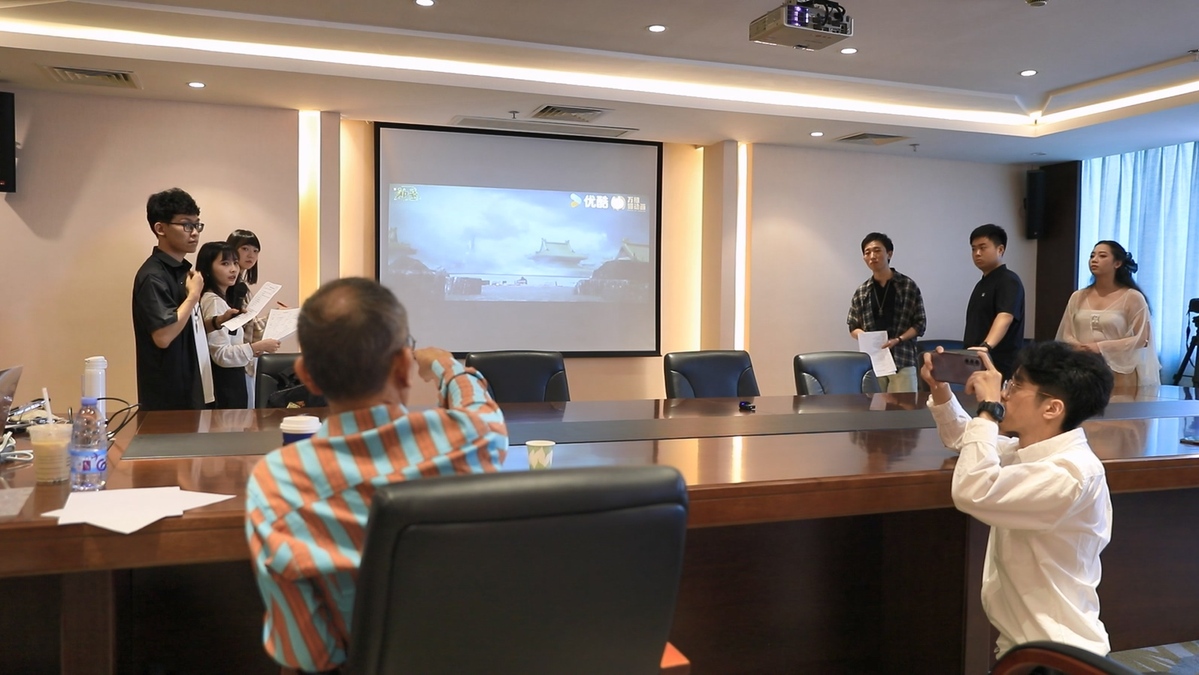
Kuan often holds high expectations of his tutees. When their performance during practice was not up to standard, he would say "Where's the stick? Bring the stick," jokingly threatening but actually encouraging them to practice diligently.
However, for these young voice actors, the chance to receive detailed guidance for just a few minutes of stage time was a rare learning opportunity.
Undergraduate student Duan often practices dubbing during his spare time, whose dubbing videos have earned him a following of over 300,000 fans on the Chinese video platform Bilibili. "Mr Kuan pointed out a few of the issues that I ignored before, which are very valuable tips for me."
Before the cross-Strait collaboration dubbing performance, the young voice actors made the most of the limited time they had to improve.
"During rehearsals, I could feel a collision of dubbing cultures between Taiwan and the mainland. In particular, we can sense the different techniques and methods we each are accustomed to. In fact, we can learn from each other," said Wang, the 30-year-old voice actor.

The effort paid off. Their performance was a success. Almost all the audience at the event appreciated their performance attentively and gave them a warm round of applause. Kuan was also one of them.
"It was absolutely amazing! I really love voice acting!" after the performance, Xiaobao's excitement was palpable.
Yayian even was moved to tears. "At first, we thought that Kuan would say, 'Where's the stick?'" she recalled, "But instead hearing him say, 'ok, good,' that moment was so touching."
While the voice-acting industries of Taiwan and the mainland differ in some aspects, the language is the same.
"We shouldn't limit ourselves to voicing just for Taiwan or the mainland. After all, we share the same language and culture. We should see ourselves as Chinese voice actors and strive for the most authentic standard Mandarin," Xiaobao said.
Similarly, Yayian hopes to not just focus on the Taiwan market but to spread her voice as a Chinese voice actor to a wider audience. "If I have the opportunity to work on the mainland, I would be very happy," she said.
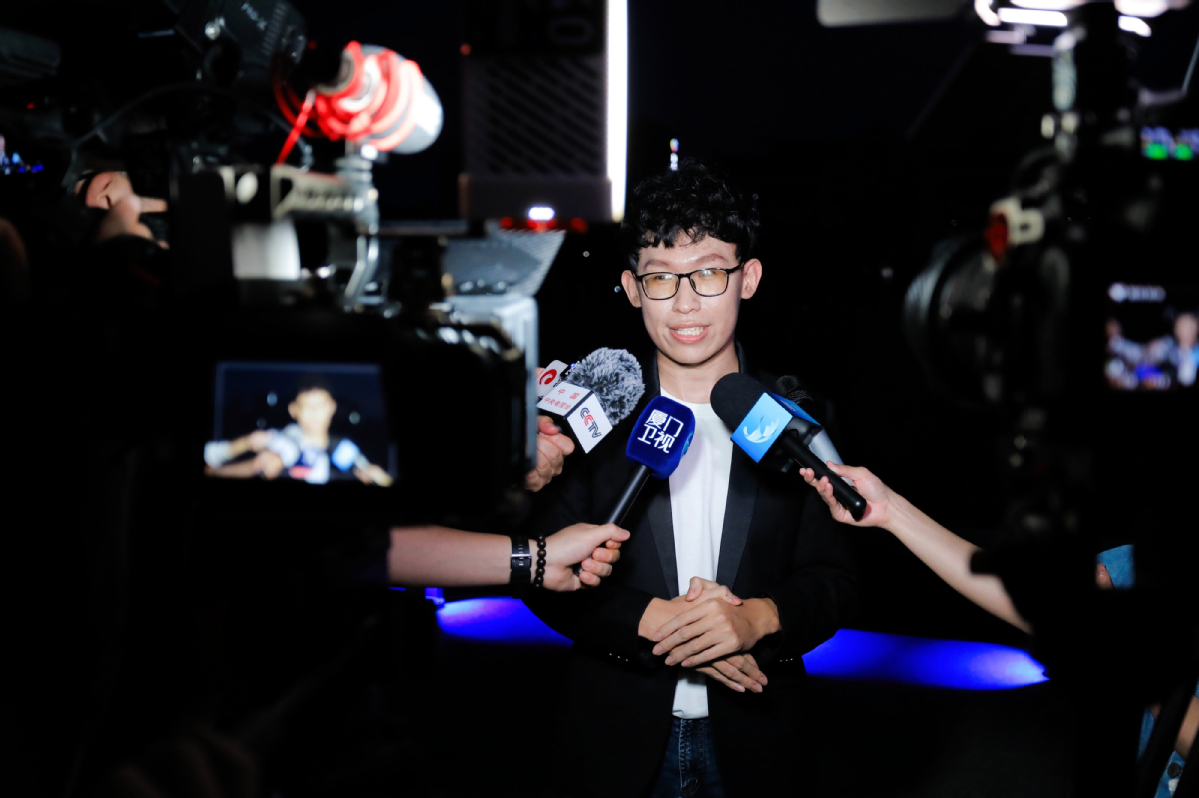
Not only them, but also many voice actors from Taiwan have noticed the positive trend in the development of Chinese animation. Among the 3,162 anime dubbing clip entries collected in this competition, there are 587 clips submitted by voice actors from Taiwan. The dubbing materials used in this competition are all from authorized excellent Chinese animations.
Chinese animation has frequently gone viral in recent years. An up-and-coming young voice actor, Li Yuze, believes that many domestic animations have become "phenomenal" because they are deeply rooted in the nation's rich traditional culture and draw inspiration from it.
A shared passion for Chinese animation connects voice acting talent from both sides of the Taiwan Strait. More and more events themed on Chinese animation build a bridge across the Strait, providing a chance and platform for passionate youths from both sides to communicate, collaborate and make a contribution to animation dubbing together.
The joint efforts of young people from both sides of the Strait allow Chinese animation and Chinese voice to spread further and louder.
“We just want to progress and grow stronger together with Chinese animation.” These words from Li convey the shared aspiration of contestants from both sides of the Taiwan Strait.

China-built railway plant starts operating in Algeria

Panda-themed railway station to open soon in Chengdu
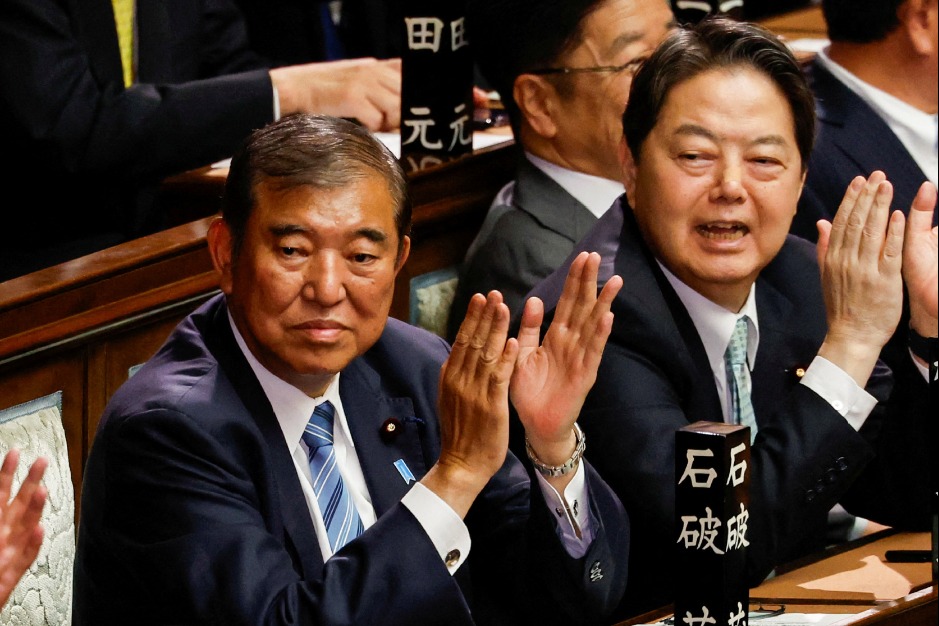
Shigeru Ishiba reelected Japanese PM

Bvlgari set to grow market presence

Hangzhou exhibition opens to commemorate legendary Italian explorer
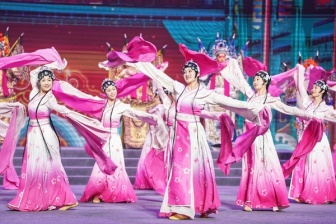
Peking Opera cultural season appeals to traditional and youthful audiences